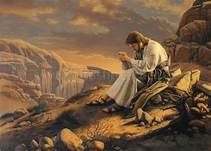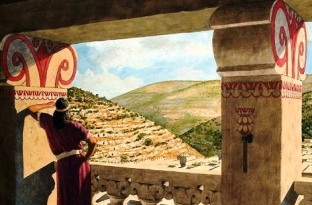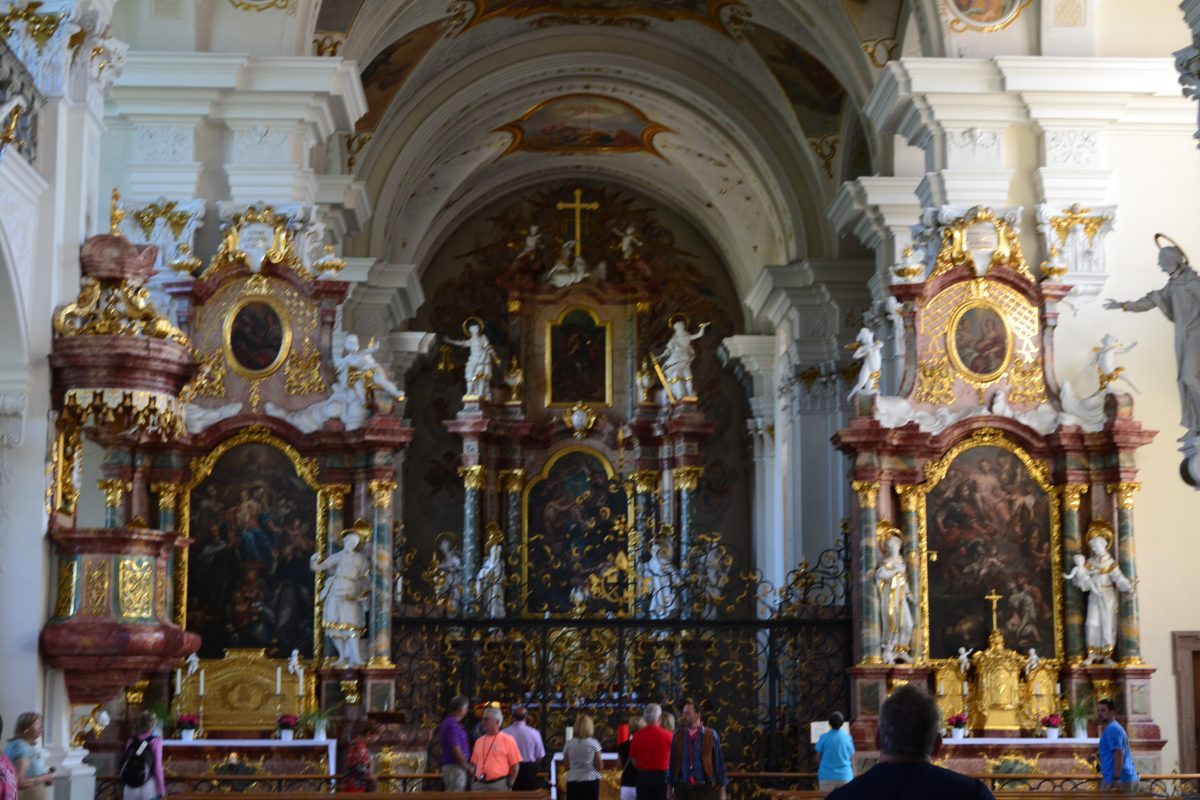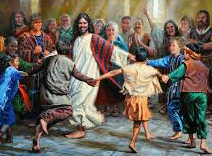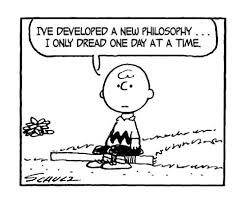Background Passages: Matthew 6: 5-15; Luke 11:1-13
The young disciple laid on his back,
opening his eyes to a new morning.
Rubbing the stubble of his beard,
Jude propped himself up on one elbow.
Surveyed the scene unfolding around him
in the dawn of a new day.
Nathaniel.
Always an early riser,
stoked the fire.
Andrew.
Always helpful,
walked up the path from the Sea of Galilee.
A bucket of water in each hand.
Others engaged in various stages of waking.
Rolled up their sleeping mats.
Folded their blankets.
Tied their sandals.
Only John remained asleep.
Snored heavily while the world came
alive around him.
Jude stood.
Stretched and yawned.
Pressed both fists into the small of his back.
Worked the kinks out of a tired body
that slept all night on the rocky ground.
He nudged John with his toe,
eliciting a grunt and a grumpy,
“Go away,”
from the weary disciple.
“Breakfast, my friend.
You’ll be grumpier if you missed it,”
Jude chuckled.
“Rise and shine.”
Jude scanned the group looking for Jesus.
He spied him a short distance up the hillside,
sitting cross-legged.
Arms held loosely in his lap.
Leaning his head against a rock.
Engaged in his morning prayer.
“Every morning without fail,”
Jude mused,
marveling at how little sleep
their master seemed to need.
The disciples ate a quick breakfast of bread and honey
accompanied by the quiet conversation of close friends.
James wrapped some bread in a cloth,
saving it for Jesus.
The men cleaned the campsite.
Put out the fire.
Then, walked slowly and quietly up the hillside,
unwilling to disturb Jesus during his
morning prayers.
They stopped a few feet away.
Some knelt.
Some bowed their heads.
Some stood silently as their gaze settled on the
placid waters of the Sea of Galilee
far below.
Jude,
for his part,
never took his eyes off Jesus.
Watched his master with a
blend of curiosity and wonder.
No rabbi he had known spent this
kind of time in private prayer.
His whole demeanor so different from
the prayerful posturing of the Pharisees.
Eyes closed.
Arms resting in his lap.
Fingers interlaced,
dangling loosely in front of him.
Jesus was a man at peace.
After a few minutes,
Jesus breathed deeply.
Opened his eyes.
Raised his head.
Smiled at his disciples.
“Good morning.”
Stretching his legs in front of him,
Jesus caught the small loaf of bread,
James flipped his way.
Unwrapped it.
Began to eat.
The disciples probed about his plans for the day.
Tried to get a handle on what to expect.
Jude fidgeted throughout the conversation,
unsettled in heart and mind.
Unable to contain his thoughts any longer,
he blurted,
“Jesus,
I watch you like this every morning.
So deep in prayer.
Always by yourself.
It’s different from anything I’ve seen.
Different from anything we’ve seen.
The Pharisees shout from the rooftops.
You whisper in the wilderness.”
The young man’s observation took the
morning conversation in a new direction.
All eyes now on him.
Jesus nodded.
Encouraged Jude to continue.
“John taught his disciples how to pray.
Teach us to pray as John taught his disciples.”
A request from one seeking to
dip his bucket into the
deep well of faith.
Jesus looked at Jude
in the ensuing silence.
Glanced at the other disciples.
He grinned like an excited teacher
when his students asked the right question.
He leaned back against his rock.
Put his hands behind his head,
wiggled his hips as he settled for what he
hoped to be a fruitful conversation.
“You tell me.
How should we pray?”
A beautiful discussion followed
concerning one of the most
important aspects of Jesus’ life.
The disciples shared their thoughts,
each building upon the other’s understanding.
Finally, when they said all they knew to say,
they waited quietly for Jesus’ response.
Jesus explained that public prayer
should always be a part of worship.
A time to draw hearts to God in times of
reflection and praise.
But such prayer will never replace our private,
intimate conversations with the Father.
Jesus shook his head.
“When you pray,
do not be like the hypocrites.
They love to pray standing in the synagogues.
On the street corners just to be seen by others.
Truly, I tell you, they have received their reward in full.
Instead, when you pray,
go into your room.
Close the door.
Pray to your Father, who is unseen.
“Do not keep babbling like pagans.
They think they will be heard because of
their many words.
Do not be like them. Your Father knows what you need
before you ask.”
Then, he offered an example for their private prayers.
“When you pray, pray like this…
“Our Father in heaven,
hallowed by thy name,
your kingdom come,
your will be done,
on earth as it is in heaven.
Give us this day our daily bread.
And forgive us our debts
as we also have forgiven our debtors.
And lead us not into temptation,
but deliver us from the evil one. “
The disciples looked at Jesus.
Some still struggled.
Jesus elaborated.
“Suppose you have a friend…”
And the lesson continued into the morning.
Jesus challenged them to think about an
unwilling friend,
who repeatedly turned them away in
an hour of great need,
only to reluctantly open the door of his home to them
when they persisted in knocking.
Then another.
What father would give a son
a snake when he asked for a fish.
A scorpion when he asked for an egg.
“The point is this,”
Jesus said.
“If an unwilling friend will eventually help
and an earthly father responds properly to a child’s need,
how much more will your Father in heaven give
the Holy Spirit to those who ask him?”
*****
Within these two passages rest Jesus’ most comprehensive teachings on prayer. Jesus may have taught this lesson twice…once in his Sermon on the Mount and once on another distant hillside. Those scholars who believe the Sermon on the Mount to be a collection of Jesus’ teachings may see these lessons as one incident. Either way, the passages beg a great question.
How should we pray?
I recently visited with my uncle, a Lutheran pastor, about the liturgical use of The Lord’s Prayer in modern worship services. The idea troubled both of us to a degree. What is repeated often can become stale and rote. I began looking at The Lord’s Prayer in the context in which Jesus introduced it to see if it made a difference in my thinking and in my practice.
Look first at the passage in Matthew. When one of his disciples first asked Jesus to teach them to pray, he didn’t immediately launch into The Lord’s Prayer. He first shared thoughts about the attitude in which we should come before the Father. Prayer, whether public or private, is no time of grandstanding. The Pharisees…the hypocrites…who prayed on the steps of the synagogue and street corners loudly proclaimed their righteousness…spoke eloquently, careful in their choice of words…infused their speech with the appropriate number of “thees” and “thous. ”Jesus said they may impress the folks, but they are not impressing God. Their incessant babbling will not be heard by God because they pray for men and not to God. The praise they receive from their fellow Pharisees for their powerful prose is all the reward they receive.
Jesus shared a parable once about the Pharisee and the Tax Collector. The Pharisee stood on the steps of the Temple, shouting his prayer to God, extolling his virtues and thanking God that he was not like the sinners kneeling nearby. The Tax Collector, on the other hand, would not lift his eyes to heaven, but beat upon his chest in remorse for all the sin in his life. He begged God for mercy and forgiveness. One was a self-serving attempt to tell God how righteous he was. The other was a humble plea of one who recognized his failures.
Jesus led them away from such demonstrative prayers. Jesus told his disciple to make prayer a private matter. Go into your room. Close the door. Take an intimate moment with your Father in heaven. But, does that negate the need for public prayer? Does it minimize the role of liturgical prayer?
Absolutely not! Prayer will always be an essential form of worship. Nor is there anything wrong with the liturgy of spoken prayer as long as neither of those become rote or carelessly offered. Prayer is our love language to God. It can and should be expressed in many different ways.
Pate Hughes was a kindly deacon in our church who passed away a few years ago. Frequently called upon to pray, Pate would approach the pulpit with such reverence. He spoke in a whisper, barely audible to the rest of us. I can describe his prayers as “heartfelt.” The rest of us were merely eavesdropping on an incredibly intimate moment between this man and his God.
Guard your attitude in prayer. That was the first point Jesus tried to make with his disciples.
When Jesus gave them this model prayer, I’m not sure his intent was to make it liturgical. I think his intent was to provide a guide as to the content of our prayers. What a model it is!
The prayer begins with two opposing, but delightful concepts. “Our Father.” An intimate phrase that speaks to our unique, personal relationship with one who we approach with reverence, recognizing his unmatched holiness. “Hallowed.” “Holy” is his name.
The next two phrases also run in parallel. “Your kingdom come.” “Your will be done.” These are petitions for God to establish his kingdom within us, to bend us to his will and way, both in the present time and the time to come. It conveys the idea that we desire God to rule in our lives daily.
Jesus also taught his disciples and us that there is a time to ask God for the things that sustain us…”Our daily bread”…and that which will cleanse us…”Forgive our sins.” He follows with a sincere request for God’s protection from the temptations the world puts in front of us and for the strength to resist that which the world makes so appealing. Seeking God’s help in forgiving those who hurt us.
Luke records Jesus’ promise that those things we need will be provided by a willing and loving Father. His story about knocking on the door of a reluctant friend is intended to tell us we don’t need to keep nagging God until we get what we want. Rather, look at the remarkable contrast Jesus offers.
“Ask and it shall be given. Seek and you will find. Knock and the door will be opened.”
Those verses stand not as a blank check for all we desire. God doesn’t simply grant all that we ask of him. I too often stopped my reading at verse 12. Look at verse 13.
“If you then, though you are evil (sinful), know how to give good gifts to your children, how much more will your Father in heaven give the Holy Spirit to those who ask him!”
The Holy Spirit is God’s greatest gift since salvation. It is the Holy Spirit that intercedes on our behalf for the deep desires of our hearts even when we have no idea what those desires might be. It is the Holy Spirit that steps between our prayers for things we don’t need and asks God to provide that which we do need. How remarkable that a gracious and loving God, through his Holy Spirit, will take our misguided prayers to give us what we need. Help us find what we seek. Open the doors that need to be opened to take us where he wants us to go.
What a promise he makes!
Prayer is an incredible opportunity to get in touch with a God who desires a close relationship with us. When we talk to God with an attitude of reverence and devotion, when we pray for God’s will to rule in our lives whatever that might mean, when we pray, confident in God’s provision, when we trust the Holy Spirit to carry our hearts to God, then prayer makes a difference.
The question of the disciple should echo in the deepest parts of our souls. “Lord, teach us to pray.”
Amen?
Amen.

